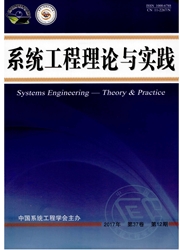

 中文摘要:
中文摘要:
本文从套利风险和非对称套利角度,通过构造可用于多因子资产定价模型的股市特质风险因子,实证分析了不同股票特质波动率组合之间的收益率差异.接着,本文基于理性套利者进行套利活动时面临的噪声交易者风险这一研究视角,分别分析了股票是否发放现金股利、股票流动性和投资者情绪对股市特质风险因子的影响.研究结果表明,股票特质波动率与投资组合形成期的收益率正相关,即股市特质风险因子显著为正.此外,发放现金股利的公司,信息透明度较高,噪声交易者风险较低,股市特质风险因子相对较小;投资者情绪越乐观,股市非预期流动性越高,股市特质风险因子越大.
 英文摘要:
英文摘要:
Based on the arbitrage risk and the arbitrage asymmetry, this paper investigates the different rates of return between the portfolios with different idiosyncratic volatilities by estimating the idiosyncratic risk premium. Further, this paper examines the effect of cash dividend payment, stock liquidity and investor sentiment on the idiosyncratic risk premium. The results show that the relationship between the idiosyncratic volatility and the stock return is positive, namely the idiosyncratic risk premium is positive. The results also show that the higher the cash dividend that a company pays, the higher the information transparency and the lower the noise trading risk, the lower the idiosyncratic risk premium. The more optimistic the investors and the higher the unexpected liquidity, the higher the idiosyncratic risk premium.
 同期刊论文项目
同期刊论文项目
 同项目期刊论文
同项目期刊论文
 期刊信息
期刊信息
